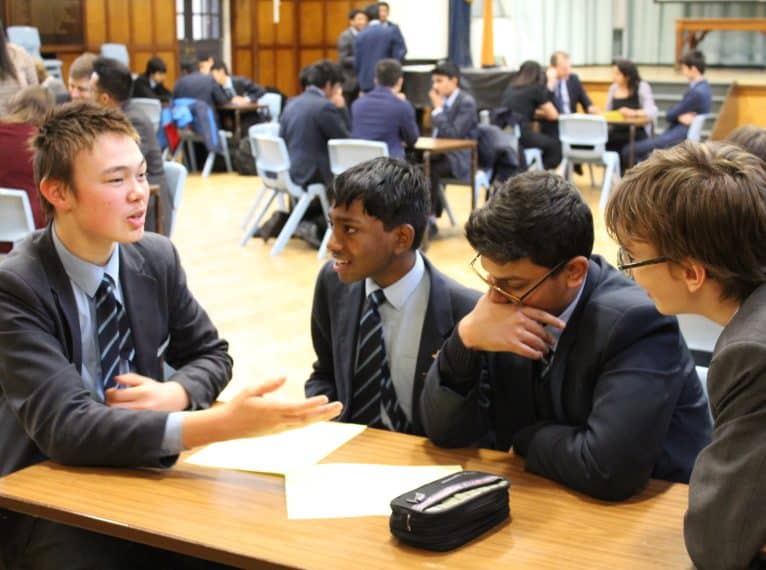
Underne emerged as victors in the close-fought inter-House World Book Day quiz, defeating the boys from Stapylton on a tie-break question.
And the competition was equally ferocious among the staff teams, with some (not entirely serious) dark mutterings being heard from teachers when their own result was announced!
Simi Bloom, of Year 7, Hamza Mohamed, of Year 8, along with Year 9’s Aryan Patel and Year 10’s Amin Mohamed, formed the winning team, with Hamza first off the mark for the all-important tie-break question: Who was the poet Laureate before Simon Armitage? (Answer: Carol Ann Duffy).
The questions covered a gamut of authors from Charles Dickens to Ruta Sepetys, and from Chaucer to J K Rowling, with a special Shakespeare round included for good measure.
The House teams were joined by five staff teams and one Sixth Form team in the event held in the Main School Hall, which was organised by English teacher Panayiota Menelaou.
QE’s Head of Library Services, Surya Bowyer, paid tribute to her work and reflected on the event as a whole: “What struck me was how universal the event was. There were boys from Years 7 through to 11 in the House teams, along with teams comprising sixth-formers, teachers and non-teaching staff. It was brilliant to see how literature can be such an effective unifier. The universality of the event was reflected also in Ms Menelaou’s careful curation of the questions, which produced a real mix of niche versus populist, and ensured that every participant knew at least one answer.”
When the winning staff team of Dr Corinna Illingworth, Mr Robert Hyland, Ms Audrey Poppy and Mr Jonathan Brooke was announced, there were rumblings from other competitors. Helen MacGregor, Head of History, said: “The History department was robbed of victory! We are already in training for next year…” while Mr Bowyer added: “With Mr Hyland’s team claiming victory, there is some chatter among the staff body that perhaps the contest was fixed….” Ms Menelaou countered she had distributed the English department staff and two librarians as evenly and fairly as possible among the staff teams!
Below is a selection of the questions and answers:
- Which two cities provide the setting for Dickens’ A Tale of Two Cities?
- Which book by Ruta Sepetys won the 2017 Carnegie book award?
- How many Canterbury Tales were written by Chaucer?
- Who split his soul into horcruxes?
- Which Shakespearean play features the characters of Goneril, Regan and Cordelia?
- Which two Shakespeare plays are translated into Klingon?
Answers
- London and Paris
- Salt to the Sea
- 24
- Voldemort
- King Lear
- Hamlet and Much Ado About Nothing

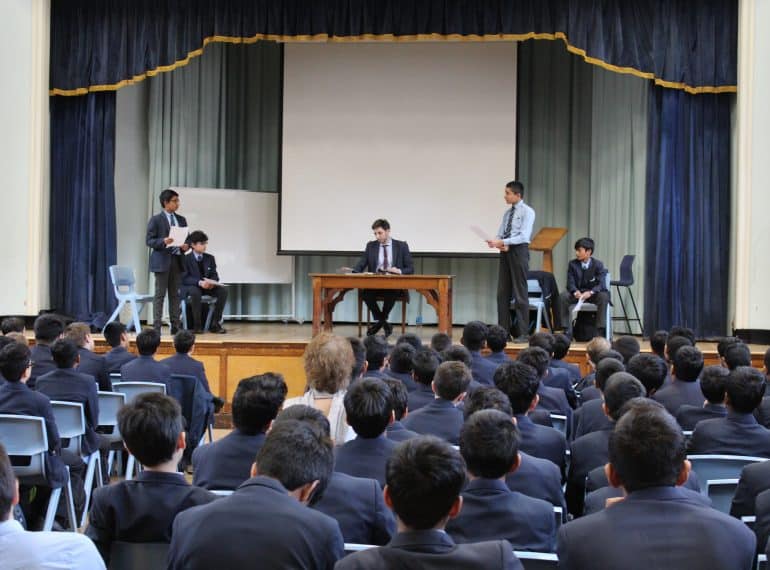
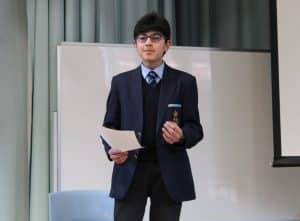 Zaki Mustafa, the first main speaker for Stapylton, presented the proposition in his allocated five minutes. He argued that freedom of speech is a pillar of democracy and a key human right, adding: “Democracy means that we decide how our country is run – the government is there to implement our decisions, not to make them.”
Zaki Mustafa, the first main speaker for Stapylton, presented the proposition in his allocated five minutes. He argued that freedom of speech is a pillar of democracy and a key human right, adding: “Democracy means that we decide how our country is run – the government is there to implement our decisions, not to make them.”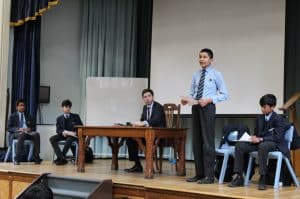 Ady added that censorship is needed in many key areas of society, including the internet, television, film and the media, and that, without censorship, children could search online for information about pornography and buying drugs. Democracy necessarily “includes censorship and we should use it to make the world a better place”, Ady concluded.
Ady added that censorship is needed in many key areas of society, including the internet, television, film and the media, and that, without censorship, children could search online for information about pornography and buying drugs. Democracy necessarily “includes censorship and we should use it to make the world a better place”, Ady concluded.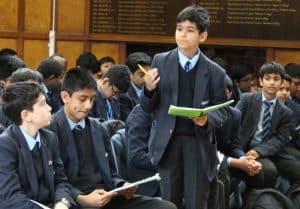 Three speakers from each side raised points or questions from the floor. For Stapylton, Joel Swedensky, Harrshiv Vyas and Akshat Bajaj touched on the importance of educating people with negative or hateful views rather than just silencing them. Leicester’s floor speakers, opposing the motion, were Abhay Halyal, Nikhil Mark and Pranav Haller, who cited as an example of the serious dangers of an absence of censorship the fact that terrorists can learn to make bombs online.
Three speakers from each side raised points or questions from the floor. For Stapylton, Joel Swedensky, Harrshiv Vyas and Akshat Bajaj touched on the importance of educating people with negative or hateful views rather than just silencing them. Leicester’s floor speakers, opposing the motion, were Abhay Halyal, Nikhil Mark and Pranav Haller, who cited as an example of the serious dangers of an absence of censorship the fact that terrorists can learn to make bombs online.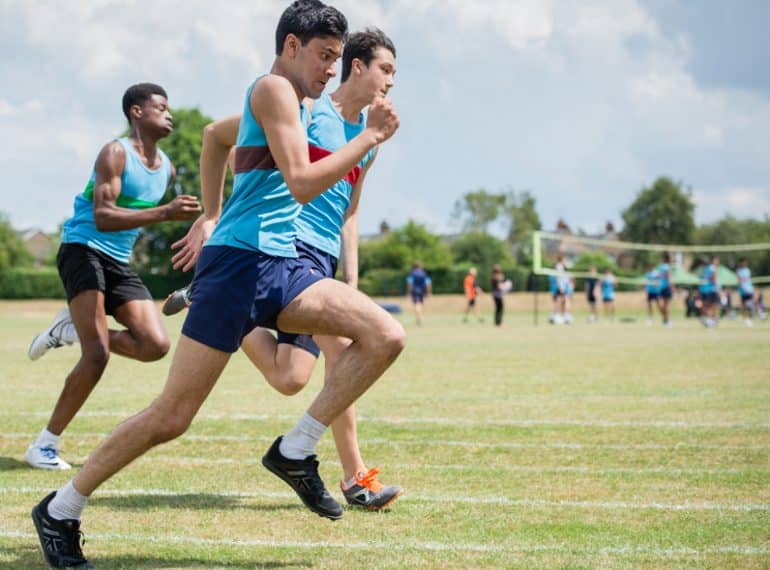
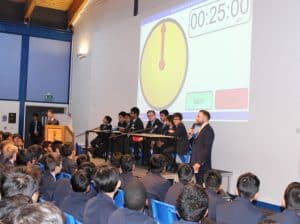 The House Competition is, however, very broad, and involves many House challenges and special events: it was victory in the recent QIQE quiz competition that put Broughton in first place on 111 points, ahead of Harrisons’ on 110.
The House Competition is, however, very broad, and involves many House challenges and special events: it was victory in the recent QIQE quiz competition that put Broughton in first place on 111 points, ahead of Harrisons’ on 110.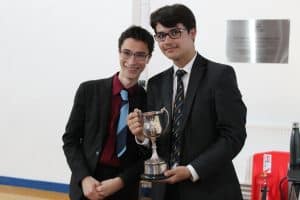 Among the biggest sources of points is Sports Day, which comes in the Summer Term, shortly before the overall winner of the House Competition is announced at a special assembly. In 2019, a strong performance at Sports Day helped Broughton overtake Pearce to claim their victory as the 2018–2019 top House.
Among the biggest sources of points is Sports Day, which comes in the Summer Term, shortly before the overall winner of the House Competition is announced at a special assembly. In 2019, a strong performance at Sports Day helped Broughton overtake Pearce to claim their victory as the 2018–2019 top House.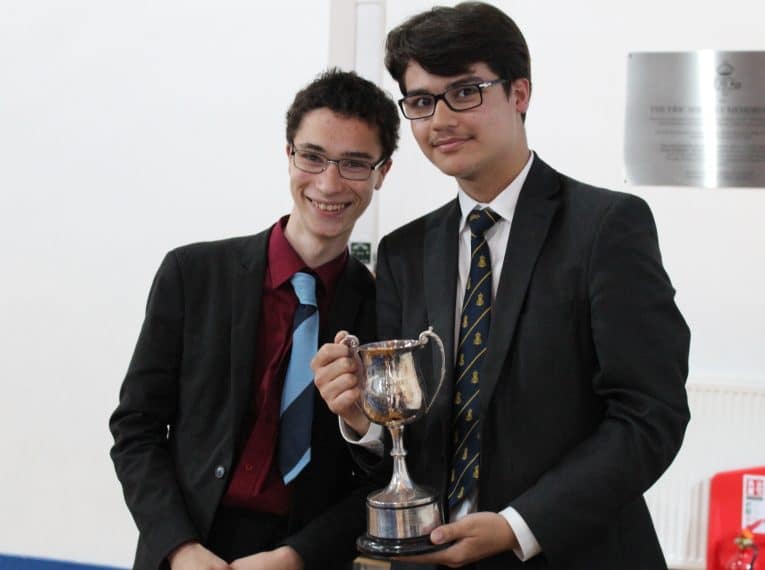
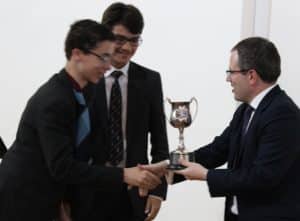 A strong performance at Sports Day helped Broughton overtake Pearce to claim overall victory as the leader of QE’s six houses – a victory announced to great excitement at the end-of-year House Assembly.
A strong performance at Sports Day helped Broughton overtake Pearce to claim overall victory as the leader of QE’s six houses – a victory announced to great excitement at the end-of-year House Assembly.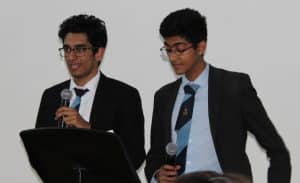 running Sai School Appeal, which aims to help the Sri Sathya Sai English Medium School in Kerala, India.
running Sai School Appeal, which aims to help the Sri Sathya Sai English Medium School in Kerala, India. For the Sai School Appeal, a FIFA Tournament saw staff and pupils battle it out, games controllers in hand, in what was perhaps the most popular charity event of the year. One notable match included that between the Headmaster and the 2019 School Captain, Bhiramah Rammanohar.
For the Sai School Appeal, a FIFA Tournament saw staff and pupils battle it out, games controllers in hand, in what was perhaps the most popular charity event of the year. One notable match included that between the Headmaster and the 2019 School Captain, Bhiramah Rammanohar.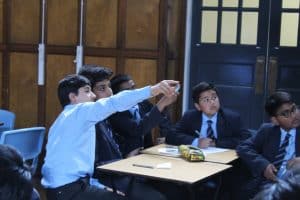 The assembly also reviewed other activities of the year.
The assembly also reviewed other activities of the year.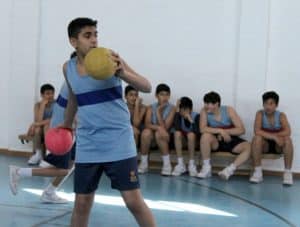 Years 8-11, as well as those who performed strongly in the UK Chess Challenge. Junior, intermediate and senior chess colours were presented.
Years 8-11, as well as those who performed strongly in the UK Chess Challenge. Junior, intermediate and senior chess colours were presented.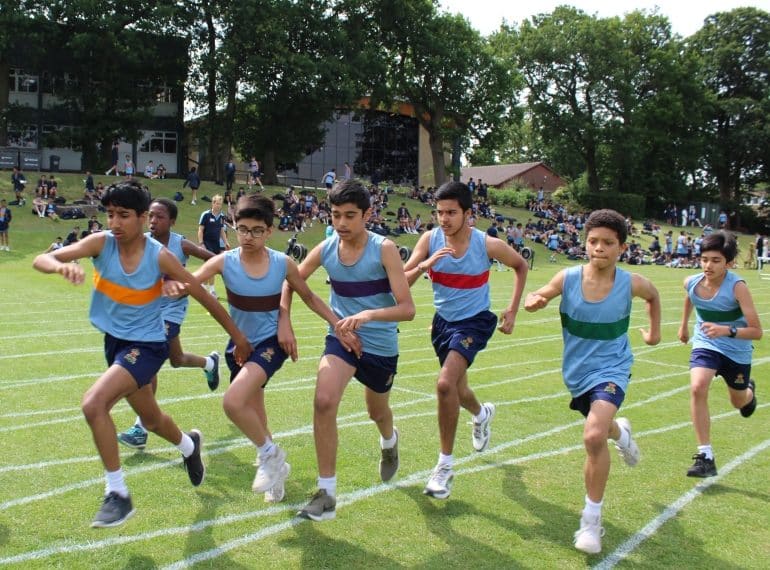
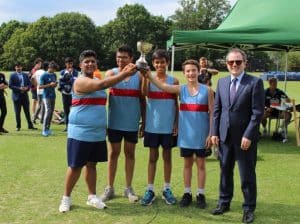 More than 730 boys from Years 7–10 took part during the day and, with athletics alone accounting for 53 separate events, some 70 staff were drafted in from all departments to help meet one of the most complex organisational challenges of the School year.
More than 730 boys from Years 7–10 took part during the day and, with athletics alone accounting for 53 separate events, some 70 staff were drafted in from all departments to help meet one of the most complex organisational challenges of the School year.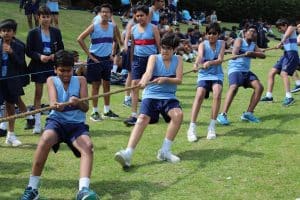 oth to Broughton House on their overall victory and to the very many boys from all Houses who performed strongly and, in many cases, achieved personal bests.”
oth to Broughton House on their overall victory and to the very many boys from all Houses who performed strongly and, in many cases, achieved personal bests.”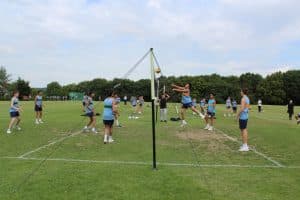 were allocated two-hour sessions comprising 10-minute stints for each boy.
were allocated two-hour sessions comprising 10-minute stints for each boy.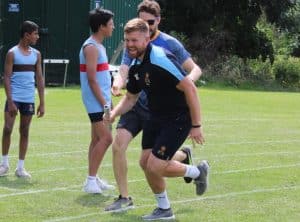 The final presentations revealed the six Houses’ overall points tally for the day, as follows:
The final presentations revealed the six Houses’ overall points tally for the day, as follows: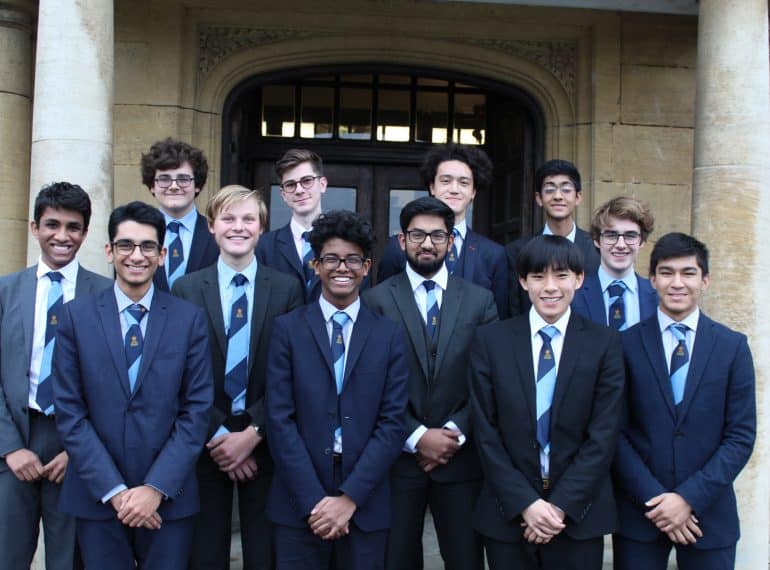
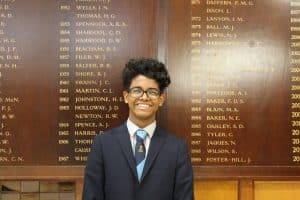 “Bhiramah is a worthy recipient of this honour, as is made clear by a recent School report which described him in these words: ‘One of the most affable, decent young men that one could care to meet or teach; he marries his many innate talents with a determined industry, the combination of which allows him to be successful in all facets of his School life.’”
“Bhiramah is a worthy recipient of this honour, as is made clear by a recent School report which described him in these words: ‘One of the most affable, decent young men that one could care to meet or teach; he marries his many innate talents with a determined industry, the combination of which allows him to be successful in all facets of his School life.’”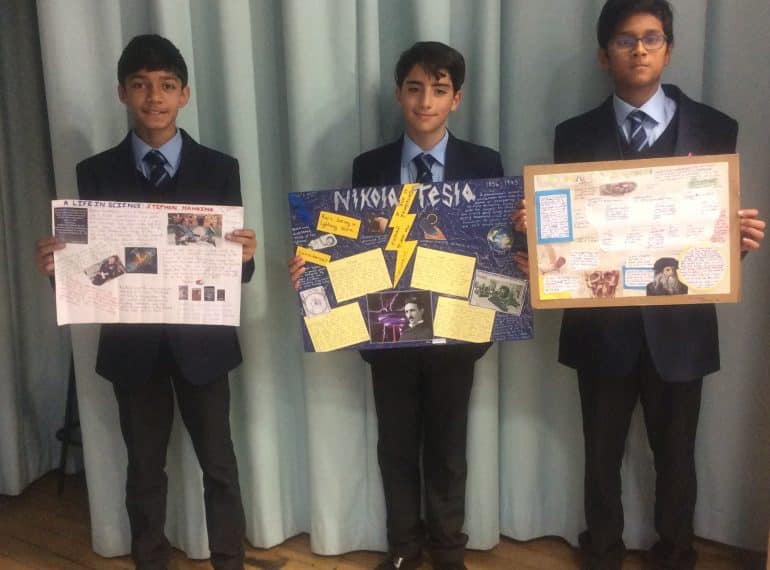
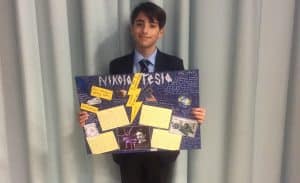 Participants were required to research eminent and unusual scientists and produce a poster. First prize went to Year 7’s Hadi Al-Esia, from Stapylton House, who chose the brilliant, but slightly lesser-known, Nikola Tesla.
Participants were required to research eminent and unusual scientists and produce a poster. First prize went to Year 7’s Hadi Al-Esia, from Stapylton House, who chose the brilliant, but slightly lesser-known, Nikola Tesla.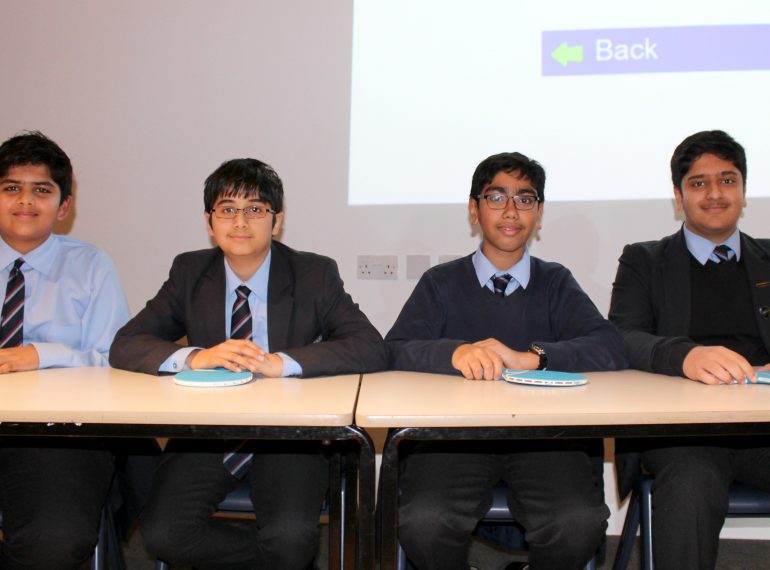
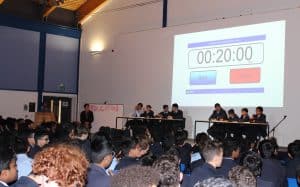 Both Houses had secured their places in the final after topping their respective group rounds in the earlier stages of the competition, which is modelled on the BBC’s University Challenge.
Both Houses had secured their places in the final after topping their respective group rounds in the earlier stages of the competition, which is modelled on the BBC’s University Challenge.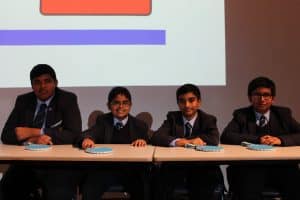 While Stapylton were strong on buildings & architecture, car manufacturers, food and capital cities, the Broughton boys’ impressive knowledge of astronomy & astrophysics, television characters, authors, football grounds and film scores helped see them to victory.
While Stapylton were strong on buildings & architecture, car manufacturers, food and capital cities, the Broughton boys’ impressive knowledge of astronomy & astrophysics, television characters, authors, football grounds and film scores helped see them to victory.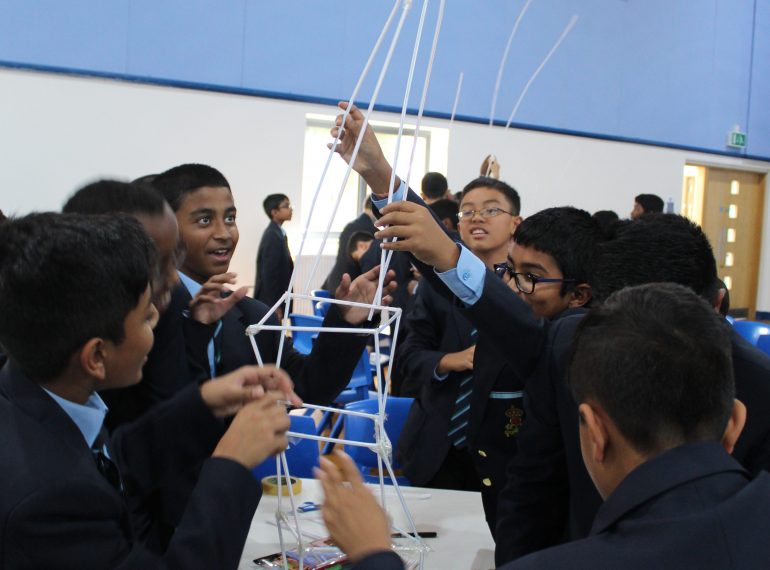
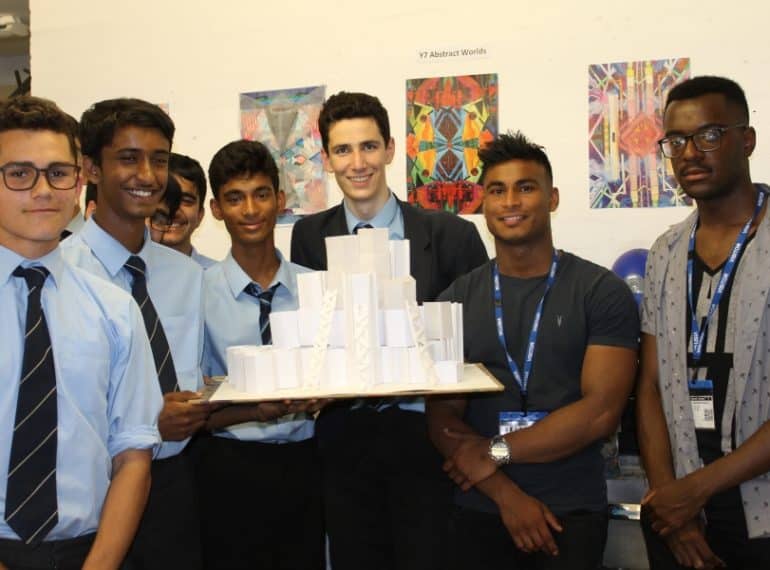
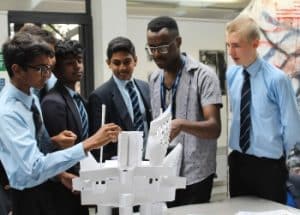 Two of 2017’s Year 13 leavers, Nabil Haque and Tochi Onuora, who are both studying Architecture at Cambridge, came back to help.
Two of 2017’s Year 13 leavers, Nabil Haque and Tochi Onuora, who are both studying Architecture at Cambridge, came back to help.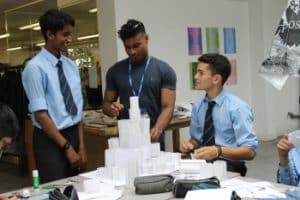 The pieces were judged at the end of the event. The Stapylton House team – comprising Alex Aliev, Nikhil Gulshan, Rakul Maheswaran, Jack Runchman, Aqif Choudhury, Riaz Kalim and Jude Miranda – won overall. Their contribution was praised for the way that it essentially used the same hexagonal shape repeatedly to build up the structure and create something very stable, yet still architecturally interesting.
The pieces were judged at the end of the event. The Stapylton House team – comprising Alex Aliev, Nikhil Gulshan, Rakul Maheswaran, Jack Runchman, Aqif Choudhury, Riaz Kalim and Jude Miranda – won overall. Their contribution was praised for the way that it essentially used the same hexagonal shape repeatedly to build up the structure and create something very stable, yet still architecturally interesting.